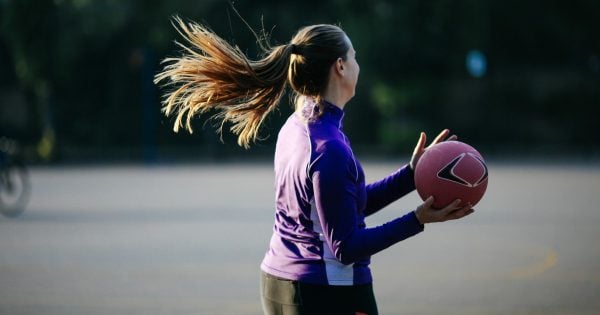There are some things you’ll only know if you play netball, along with the approximately half a million other Australians who love the game.
That “here if you need” isn’t an offer to help carry someones groceries. That the position you play says A LOT about your personality. And that it’s entirely possible to pee yourself for seemingly no reason, decades after you said goodbye to nappies.
Thought you were the only one? Think again.

New research has found that one in three netball players have experienced urinary incontinence while playing Australia's most popular team sport for women - and it's not just those that have had children, either.






























































































